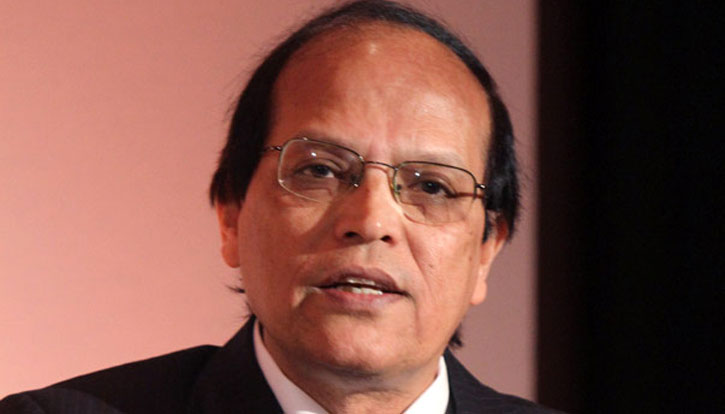Bangladesh Bank governor Dr Atiur Rahman on Monday said the central bank after its inspections has not found anything that requires a major change in Grameen Bank’s operation. “Bangladesh Bank is obliged to carry out annual inspections in Grameen Bank. Bangladesh Bank has not found anything that requires a major change how Grameen Bank operates,” he said.
The central bank chief’s remarks came at a time when the government is widely being criticised for its reported plan to split the Nobel-winning microcredit institutions into 19 entities.
Atiur, however, said the Bangladesh Bank has nothing to do with the Grameen Bank commission.
The central bank chief was addressing a function titled ‘Are Microcredit Participants in Bangladesh Trapped in Poverty, and Debt?’ organised by InM at PKSF auditorium in the city.
Brac Executive Director Dr Mahbub Hossain, Planning Commission Member Dr MA Sattar Mondol and World Bank Lead Economist Dr Shahidur R Khandker, among others, spoke at the programme held with PKSF Chairman Qazi Kholiquzzaman Ahmad in the chair.
Dr Kazi Mezbah Uddin Ahmed of the PKSF presented the keynote paper at the discussion.
Speaking as the chief guest, Atiur said the MFIs (Micro Finance Institutions) in Bangladesh vary significantly in terms of their noncredit services though they typically include training, related business development services and social messages on education, health and civic rights.
One published paper by McKernon finds that these noncredit interventions raise self-employment profits in rural Bangladesh by 125 percent while the combined impact of credit and noncredit interventions on self-employment profits is 175 percent, Atiur said.
He mentioned that most published papers show that access to microcredit leads to women taking a greater role in household decision making, greater access to financial, economic and social resources and having greater mobility in Bangladesh.
“It’s clear that microfinance can protect households from shocks, contribute to changing societal norms about the role of women in society and lead to some households moving out of poverty,” Atiur said.
Overall, he said, it has played its part in the impressive progress Bangladesh has made in poverty reduction over the past two decades.
“But not everyone utilises loans productively and there is a risk of falling into over-indebtedness. So, the role of microfinance should be strengthened through further innovations which take into account these pitfalls.”
The central bank chief thinks the potential of microfinance can be best exploited by recognising the lessons from careful impact evaluation studies, strengthening programmes on the basis of this research and field experience, and by incorporating micro-finance programmes into Bangladesh’s overall poverty-reduction strategy.
He said both the Central Bank and MFIs need to promote financial literacy programme using radio, TV and internet to address some of these knowledge gaps. “We’ve started such a programme at Bangladesh Bank and hope the MFIs can scale up these activities.” – UNB




